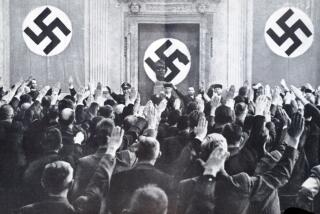Remember JFK, not his killer
Fifty years ago, a troubled man with a gun blew away a beloved president before our eyes. Since then, too many young males with weapons have blasted their way into our American Hall of Infamy. Their acts, now a “senseless violence” cliche, are frequently fatal but far from senseless. From the killers’ perspective, their theatrical mayhem makes a potent statement.
With each bloodletting, we finger-point at causes: a plethora of guns, a paucity of mental health services. But one troubling motive for massacres gets overlooked: They often do it for an audience. That’s the rush — spectacle, followed by a laser beam of global notoriety. Fame is addictive, and if you’re an assailant loaded with hate and firepower, who cares if the payoff is posthumous?
Shocking as it was, that bloody November day in Dallas has been outgunned by Sandy Hook, Aurora, Virginia Tech and other tragic incidents. Statistics show that the number of mass shooting episodes in the U.S. remains about the same each year. What continues to grow is the attention we pay to them, thanks to our unblinking 24/7 technology.
What would happen if media and law enforcement declined to photograph or name the Oswalds or the Rubys? What if no one broadcast killers’ murderous boasts or posted their online ramblings? Could history hold answers to our dilemma?
Maybe. Several long-ago societies, for instance, devised strategies to keep evildoers from becoming instant celebrities. As I wrote in an Op-Ed article in January, a precedent that sprang from a heinous crime in Ephesus in 356 BC is worth considering:
“Long-ago cultures — Egyptian, Greek and Roman — also made it a point to censure certain individuals by inflicting a similar punishment. In Latin, it was called damnatio memoriae: to castigate by erasing one’s name and deeds from public memory. In our time, damning killers in such a way is surely worth a try.”
Continue reading: “For mass killers, no name, no fame — forever”
ALSO:
McManus: JFK, a presidency on a pedestal
Nov. 22, 1963: 50 years, and still no conspiracy
John F. Kennedy was too complicated to be idolized
Vicki Leon is the author, most recently, of “The Joy of Sexus: Lust, Love, & Longing in the Ancient World.”
More to Read
A cure for the common opinion
Get thought-provoking perspectives with our weekly newsletter.
You may occasionally receive promotional content from the Los Angeles Times.










